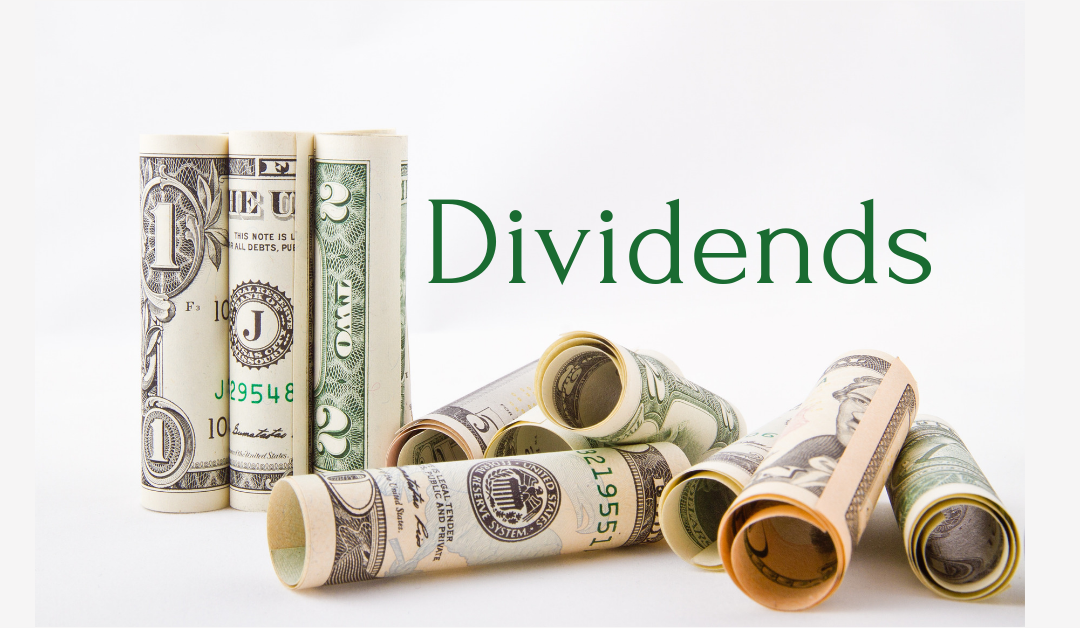By ShariaPortfolio Editors
The standard advice for building wealth as an investor is to aim for a “60/40” investment portfolio. This means that roughly 60 percent of your money is invested in the stock market, while the other 40 percent is invested in bonds. Stocks, which can drive growth but come with risks, are balanced by interest-paying bonds, which can produce income with less volatility.
But this type of portfolio can cause problems for Muslims who wish to follow Islamic, or Sharia, law. The rise of Sharia-compliant mutual funds makes it relatively easy to invest in stocks. However, bonds pay interest and the Qur’an states that interest payments are considered usury and are thus prohibited.
Dividend-paying stocks, however, are an investment option that provides many of the benefits of bonds yet doesn’t trigger the prohibition against receiving interest. Dividend-paying companies distribute a portion of their net income to holders of their stock each quarter and reinvest any remaining profits back into their business. You buy shares in the company and when it makes money, you are paid your portion of the profit on a regular schedule; this payment is called a dividend.
Let’s take a look at the benefits of purchasing dividend stocks for Muslim investors.
Benefit #1: Receive steady income. Many investors, especially retirees, appreciate the steady source of income provided by dividend stocks. Stable dividends are one of the most important factors that enable mature, well-established companies to keep their stock prices strong. Dividend-paying companies will therefore go to great lengths not only to keep their dividends consistent and predictable, but to increase the amounts paid out on a regular basis.
Benefit #2: Avoid the stock market roller-coaster. Investors should remind themselves that it’s virtually impossible to predict the stock market with accuracy. It is simply too complex and depends on the beliefs of countless investors and the actions of massive hedge funds and other large companies. Dividends are less unpredictable. If you identify a company with safe, reliable cash flows and a history of paying dividends, you can conclude that they will offer a reliable dividend into the future.
Benefit #3: Use earnings to generate more earnings. When you use your dividend earnings to purchase more shares of company stock, you can earn more money without having to invest any additional funds. This compounding strategy is based on the power of exponential growth: your original investment generates a certain return that can be reinvested to produce greater returns, and those returns can be reinvested, and so on. Think of a small snowball continuously gathering more snow as it rolls down a hill – the bigger it gets, the more snow it packs on with each revolution. This is a great image for understanding how reinvesting your dividend lets you tap into the wealth-creating power of compounding.
Benefit #4: Profit now and profit later. Non-dividend-paying stocks offer the potential for future profit, if you buy their stock at a low price and sell it for a higher price. But dividend stocks pay in real time – you don’t have to wait for a start-up or a new product to prove itself. Additionally, you may earn a return on investment if your share prices increase. Many dividend-paying companies are financially stable and relatively reliable, so their stock prices tend to increase over time. You can share in company profits today and potentially sell your shares for a profit in the future.
As with every investment, the drawbacks of dividend investing should also be examined before buying in.
Drawback #1: There’s an inevitable cap on possible returns. Investing solely in growth stocks may lead to massive losses yet the potential upside is also much higher. But even if a company pays the highest dividends manageable, they still will not have the kind of yield that is possible with successful growth stocks. If, for example, you had bought and held a sizable number of Apple shares in the 1980s, you would be incredibly wealthy today. Buying a number of high-dividend stocks will not lead to growth at a similar level. And too high a payout may mean that too much of its earnings are being paid out to shareholders and not enough is being kept to pay-down debt, reinvest in growth, or serve as a cash reserve.
Drawback #2: It’s difficult to pick Sharia-compliant dividend stocks. Many of the companies that provide dividends are big banks, which pay interest and may make speculative investments, or utilities, which carry a lot of debt. Neither sector is Sharia-compliant, narrowing the number of potential dividend stocks available for observant Muslims to invest in.
Drawback #3: What goes up might come down. A bank checking account is insured against loss by the government. There’s no protection, however, against a company deciding to reduce or eliminate its dividend. Even blue chip companies can change their dividend-paying policies. This, in turn, can have a negative effect on the company’s stock price. If a company is forced to cut its dividends for any reason, investors run the risk of not only losing their regular payments but also losing their accumulated share appreciation, as other investors move on to other stocks.
Drawback #4: Diversification may be limited. Dividend stocks tend to be concentrated in specific sectors, so they do not provide much diversification. In addition, most small-cap stocks do not pay any dividends at all, and many high-tech stocks don’t pay dividends either. By focusing on dividend stocks, you may miss out on the sometimes huge gains that can be provided by a more diversified array of Sharia-compliant companies.
Dividend stocks can be attractive additions to a Sharia-compliant portfolio. As with all types of investing, these investments come with risks and should be approached with care and study. Understanding the benefits and drawbacks of dividend stocks and speaking with a financial professional are steps you can take to determine whether to add these investments to your own portfolio.

